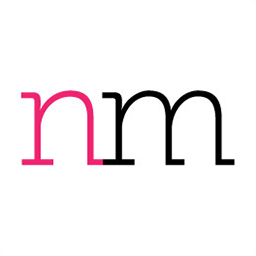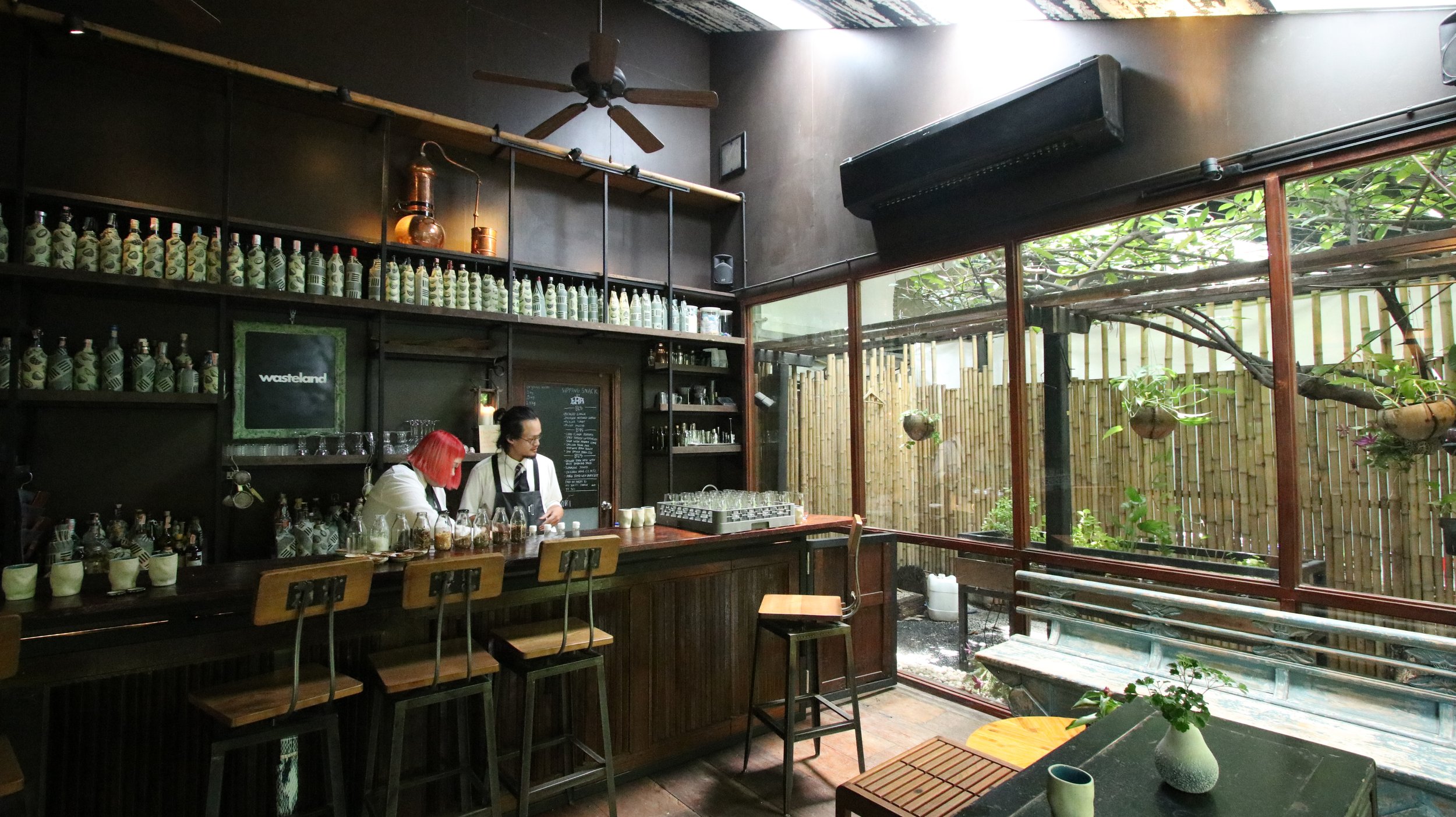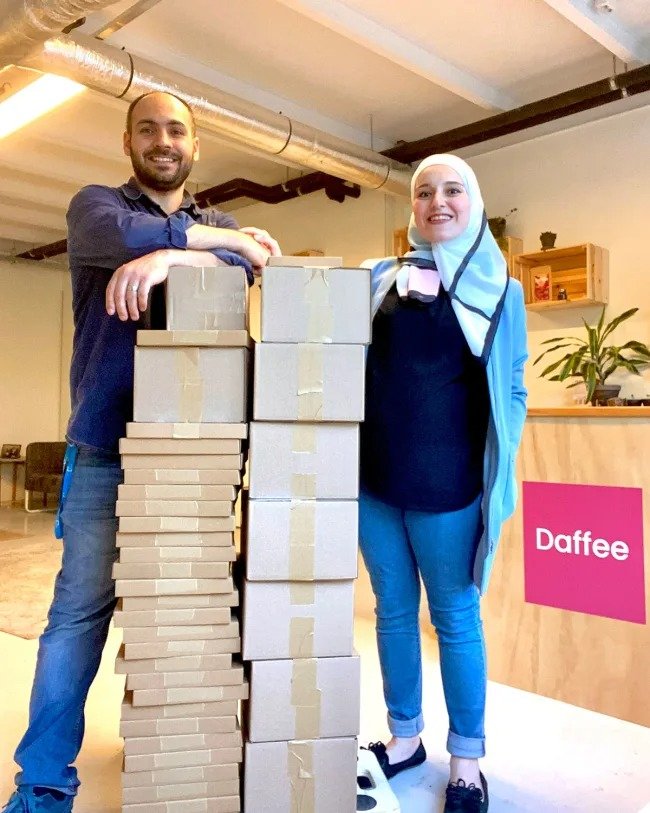7 Inspiring Entrepreneurs Battling Food Waste
Covid-birthed Wasteland bar, Bangkok.
In June of 2022, gastronomic changemakers from around the world gathered in Bilbao, Spain, to celebrate a new class of inductees into a group of innovators under the age of 35 known as 50 Next. On the list were these seven entrepreneurs tackling the problem of food waste, which accounts for 8 to 10 percent of global greenhouse gas emissions. Read on to learn about their sustainable brands on the rise.
Rahaf Allymoni, right, and her husband and business partner Tamim.
Rahaf Allymoni is the co–founder of the Netherlands–based Daffee, a caffeine–free drink made with upcycled date seeds. When the Syrian–born entrepreneur was advised to eat dates for a stomach ailment, she discovered that they are packed with nutrients and are a natural energy booster. She began saving the seeds and dreamt of making a beverage from them. The Syrian civil war drove her to the Netherlands, where she completed her master’s in economic development and innovation. Daffee is now available in cafés and online throughout the Netherlands, Germany, England and Austria, with further expansion in the works.
Caroline Cotto is co–founder and chief operating officer of Renewal Mill, a San Francisco Bay Area–based company that upcycles food manufacturing by–products. Plant–based milk by–products, for example, are transformed into gluten–free flours and baking mixes (its brownie mix is a best–seller). Jobs helping women at tech companies and tech entrepreneurs provided Cotto with a “crash course” in how to build a business, fundraise and network. She also helped launch Upcycled Food Association to integrate upcycling into our food system. “There’s not one path to success,” she advises aspiring food entrepreneurs. “Follow your curiosity and take opportunities as they come; every learning experience and will get you closer to what you want to do.”
Dharath Hoonchamlong.
3. Dharath Hoonchamlong was fresh out of New York University with a degree in food studies when he signed on as environmental manager for Bangkok’s top–rated Bo.Ian restaurant. Covid–19 birthed the idea of Wasteland bar as a way to upcycle surplus produce to make creative cocktails. Then a government ban on public drinking led to another pivot: making craft sodas with upcycled cacao husks and other surplus ingredients and byproducts, which satisfied health–conscious consumers’ interest in non–alcoholic “complex, layered drinks with exciting taste notes,” Hoonchamlong says. To increase sustainability, his team works with villages in Thailand to solve food waste issues and develop new drink projects. Hoonchamlong’s favourite: Mineral Lemonade made with organic lime and mineral–rich sun–baked clay.
4. Oscar Ekponimo liked to build things from an early age, like a fan made of batteries and beverage tin cut–outs as blades. Growing up in Nigeria, he also experienced hunger. After studying computer science as an undergraduate then attending business school in Lagos, his first creation was Chowberry, an app that connects near–expiry grocery products with non–profits and charities that distribute them to the hungry. But Ekponimo had his sights set on a bigger goal: a more equitable food system. He created the Chowberry Foundation, which operates throughout Africa and in the U.S., and has diverted 30,000 tonnes of food that would have become waste onto the tables of more than 50,000 households facing poverty in Nigeria.
5. Juan Pablo Medina was studying in London with two fellow Colombians when they noticed the large quantities of coffee — one of the primary agricultural products of their country — their Scandinavian friends consumed. Knowing that coffee is replete with beneficial antioxidants, fatty acids, proteins and esters, the trio of friends moved to Copenhagen and founded the bioscience company Kaffe Bueno, which upcycles spent coffee grounds into anti–aging cosmetics and nutraceuticals. Their latest round of fundraising netted them a €2.5 million grant from the European Commission to create the world’s first coffee bio–refinery.
Pol Contreras, photo by Great Visuals.
Photo by Great Visuals.
6. Pol Contreras Vilapriñó is a Spanish chocolatier and pastry chef who says, “I work with cacao beans the same way a winemaker does with grapes.” He ferments Indonesian cacao husks to make stout beer and Indian cacao husks to make wine. While the idea of chocolate might encompass bean to bar for some, he is charting new frontiers of cacao bean use. He loves the mucilage, or the sticky parts that surround the beans in the pods (“It’s incredible”) and uses it to make kombucha and vinegar. He’s also working with a London–based textile designer to extract textile dyes from cacao husk waste. Another hat he wears: pastry chef for the restaurants of the Hotel Echaurren (including the two Michelin–starred El Portal de Echaurren).
7. Being raised in a no–waste Singaporean household made the leap to no–waste entrepreneur a short one for Travinder Singh. He launched his upcycled bread–to–beer company, Crust Group in 2019. The pandemic prompted Singh to shift to food tech, starting a second company called Crop, which upcycles fruit and vegetable waste to create health–focused, functional non–alcoholic drinks. His company’s B Corporation certification is reflected in choices such as locally grown ulam raja instead of imported hops in its products. He explains, “A lot of our food waste comes through trade, so pivoting to local ingredients reduces emissions and creates a more sustainable supply chain and a more resilient model.”
Read this article at enRoute Magazine.







